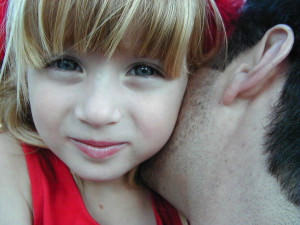
The Hugs I Regret Not Giving
I don’t typically regret much. I believe what’s past is past. As I get older, however, the passage of time allows me to look back and consider life’s lessons.
Our children are now grown, for the most part. Our sons are certainly men,…

It’s All My Fault
When I went to college in the mid ‘70s, I made fun of people who sat in the front row of the class. I thought their eagerness to get good grades was a “kiss ass” thing and that real “free thinkers” didn’t have to conform to the rigorous…

A Legacy Of Love
My Grandfather, Nathan, was an incredibly shy man. In addition to being very short (5’4”), he was a quiet and kind immigrant who listened far more than he spoke. He came from Russia to pursue a better life, and made his living as a bicycle-riding…

Are You a Free Range Parent ?
I never thought I’d use a new-age term for happy chickens to address a parenting-related issue, but I suppose over-cautious parents are as oppressive to children as cages are to chickens.
The organization known as Free Range Kids is “fighting…

Kanye’s Silver Lining
Yep, we almost saw it again, Kanye West deciding that his musical opinion trumps all others – and that he is the true arbiter of all musical “art.” Part of the good news is that we didn't see it – at least we didn’t see the rude…

Ballet Dads
We’ve got three sons and a daughter. They arrived in that order. By the time our daughter Emily was born, I had coached and/or refereed multiple seasons of Little League, Muni Basketball, and AYSO. When our daughter arrived she showed…

You CAN Go Home Again
Many parents lament the fact that their children are growing up. We all yearn for those cuter times when our children could be held in our arms. For JoAnn and me, those delicious hugs from our children are now marked by facial hair and fashionable…

Weddings and World Peace
My wife, JoAnn, and I started this year on the perfect note - we went to a wedding on New Year’s Eve. Essentially, we doubled down on hope.
After all, what is more optimistic than two people sharing their love on a day that marks the beginning…

Five Easy Resolutions Every Parent Can Make
These are difficult times in which to raise children. We’ve become a culture that mistrusts authority, that believes individuals are often more important than the society, and that everyone deserves special treatment. As a result, it is up…

Making Marriage Work
In honor of the fact that JoAnn and I are celebrating our thirty-seventh wedding anniversary this week, I thought I’d reflect a little on what I think has allowed our relationship to survive.
People express their understandings of a marriage…
